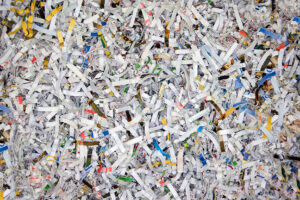In the intricate ecosystem of healthcare, where patient well-being is the core focus, managing medical waste efficiently is indispensable. Beyond the immediate health implications, effective medical waste management safeguards the environment, meets regulatory compliance, and even enhances a facility’s operational efficiency. This article delves into the best practices healthcare providers should employ when handling medical waste.
1. Waste Segregation at the Source
Start by classifying waste correctly at the point of generation. This not only streamlines the disposal process but also reduces the risk of cross-contamination. Using color-coded bins or clearly labeled containers can make this task easier. For instance:
- Red for biohazardous waste.
- Yellow for sharps.
- Green for general waste.
- Blue for pharmaceutical waste.
2. Use Appropriate Containers
Each type of medical waste has its designated container:
- Sharps: Always use puncture-resistant containers.
- Biohazardous waste: Utilize leak-proof, labeled bags or containers.
- Pharmaceuticals: Secure containers that prevent spillage or unauthorized access.
3. Train Staff Regularly
Continuous education is the backbone of effective medical waste management. Regular training ensures that all staff members are updated on the latest guidelines, understand the importance of proper waste disposal, and are equipped to handle waste appropriately.
4. Limit Handling
The more times waste is handled, the higher the risk of spills, exposure, or injury. Design a workflow that limits the number of touchpoints from generation to disposal.
5. Stay Abreast of Regulations
Medical waste regulations can vary by state and region. Stay updated on local, state, and federal guidelines to ensure your facility remains compliant. This not only protects patients and staff but also shields the facility from potential legal repercussions.
6. Plan for Contingencies
Emergencies or unexpected situations can arise. Have a contingency plan in place for scenarios such as:
- Spills or leaks from waste containers.
- Overflowing waste storage areas.
- Delayed pickups from waste disposal vendors.
7. Regularly Audit Waste Management Processes
Conduct periodic audits to evaluate the efficiency and effectiveness of your waste management system. This can help identify gaps, reduce costs, and ensure that you’re adhering to best practices.
8. Partner with Reputable Medical Waste Disposal Companies
Outsourcing waste disposal can often be more efficient and compliant than handling it in-house. When choosing a partner, consider:
- Their expertise and experience in the field.
- Compliance with regulations.
- Sustainability initiatives.
- Responsiveness and reliability.
9. Promote Sustainability
While safety and compliance are paramount, it’s also essential to consider the environmental impact of medical waste:
- Reduce: Minimize waste by considering processes or products that generate less waste.
- Reuse: When safe and compliant, consider sterilizing and reusing certain non-disposable instruments.
- Recycle: Partner with waste disposal providers that promote recycling initiatives.
10. Maintain Documentation
Always keep records of your waste management processes, from waste generation logs to disposal certificates. This documentation not only aids in regulatory compliance but can also be invaluable during internal audits or reviews.
In Conclusion
Effectively managing medical waste is a critical responsibility for every healthcare provider. By embracing these best practices, facilities can ensure safety, compliance, and efficiency, all while fostering a reputation of care that extends beyond the patient room to the environment and broader community.
Looking to optimize your medical waste management? Reach out to our team for expert guidance and tailored solutions.










